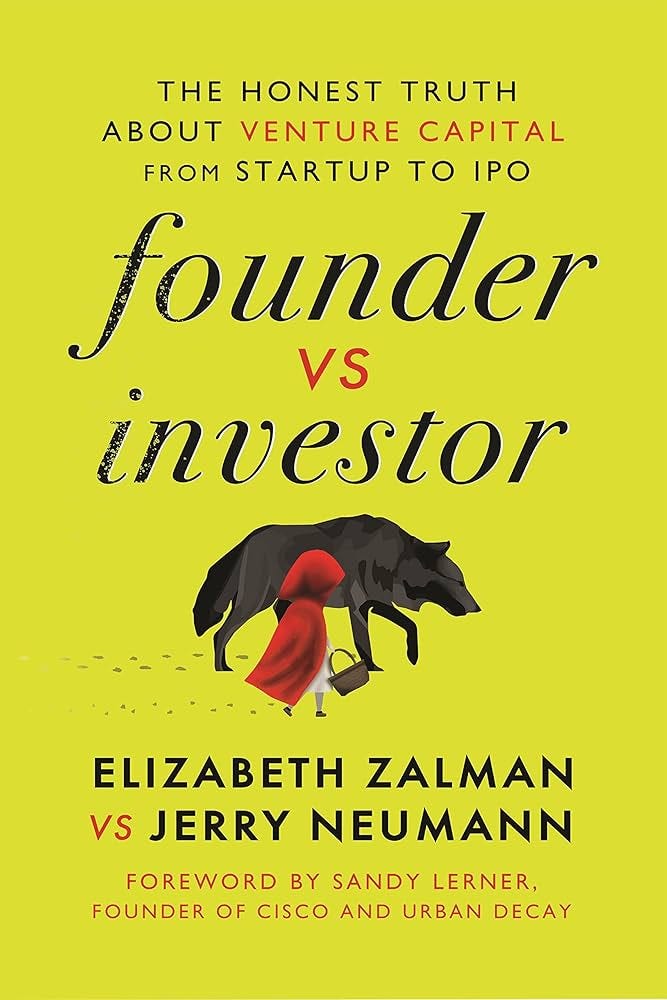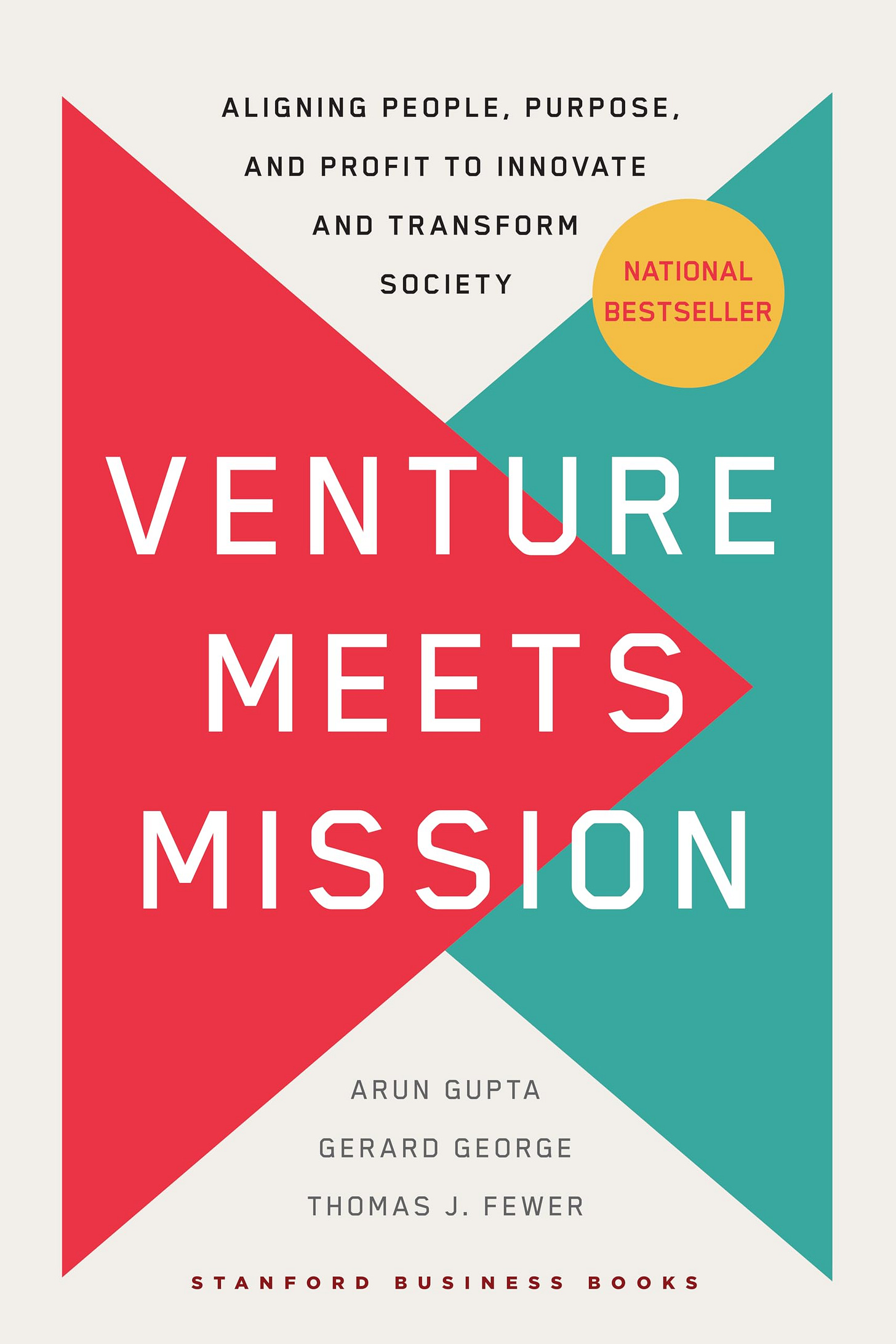10 Best Venture Capital Books Recommended by Top VCs
The top 10 venture capital books every founder and investor should read to master fundraising, dealmaking, and startup strategy.
Venture capital has never moved faster, or felt more uncertain. Between shifting market cycles, evolving firm models, and new funding mechanics, staying sharp means staying educated.
For founders, investors, and anyone entering the space, books remain one of the few resources deep enough to unpack the nuance behind every deal, strategy, and turning point in the startup ecosystem.
This curated list pulls together the best venture capital books recommended by seasoned VCs. Inside you’ll find tactical guides, founder-investor war stories, and frameworks that help you think like an investor, whether you’re writing your first check or raising your next round.
Brought to you by PortfolioIQ: The Portfolio Data Terminal
Some habits are hard to let go of. But seriously, it’s time.
PortfolioIQ pulls and standardizes your portfolio data from decks, spreadsheets, forms, and emails - automatically.
No cleaning. No formatting. No work required.
Just one place for all your data - standardised and auditable.
Table of Contents
10 Best Venture Capital Books: From Basics to Advanced
Key Takeaways From the Best Books on Venture Capital
FAQs About Venture Capital Books
10 Best Venture Capital Books: From Basics to Advanced
Venture capital isn’t one-size-fits-all, and neither are the books that illuminate it. Some teach you how to read a term sheet. Others explain how firms raise, manage and deploy capital. A few explore the psychological push-pull between founders and investors.
The best VC books meet you where you are and take you one level deeper.
This list spans the full spectrum. You’ll find foundational reads like Venture Deals, play-by-play narratives like Founder vs Investor, and global strategy perspectives like The Power Law. You will also find titles that look ahead into where the industry is heading, from inclusive investment models to mission-aligned capital, and frontier market innovation.
Whether you’re a startup founder navigating your first raise or an investor looking to refine your competitive edge, these venture capital books reveal how capital moves, how modern VCs think, and how the game keeps evolving.
1. The Venture Mindset: How to Make Smarter Bets and Achieve Extraordinary Growth
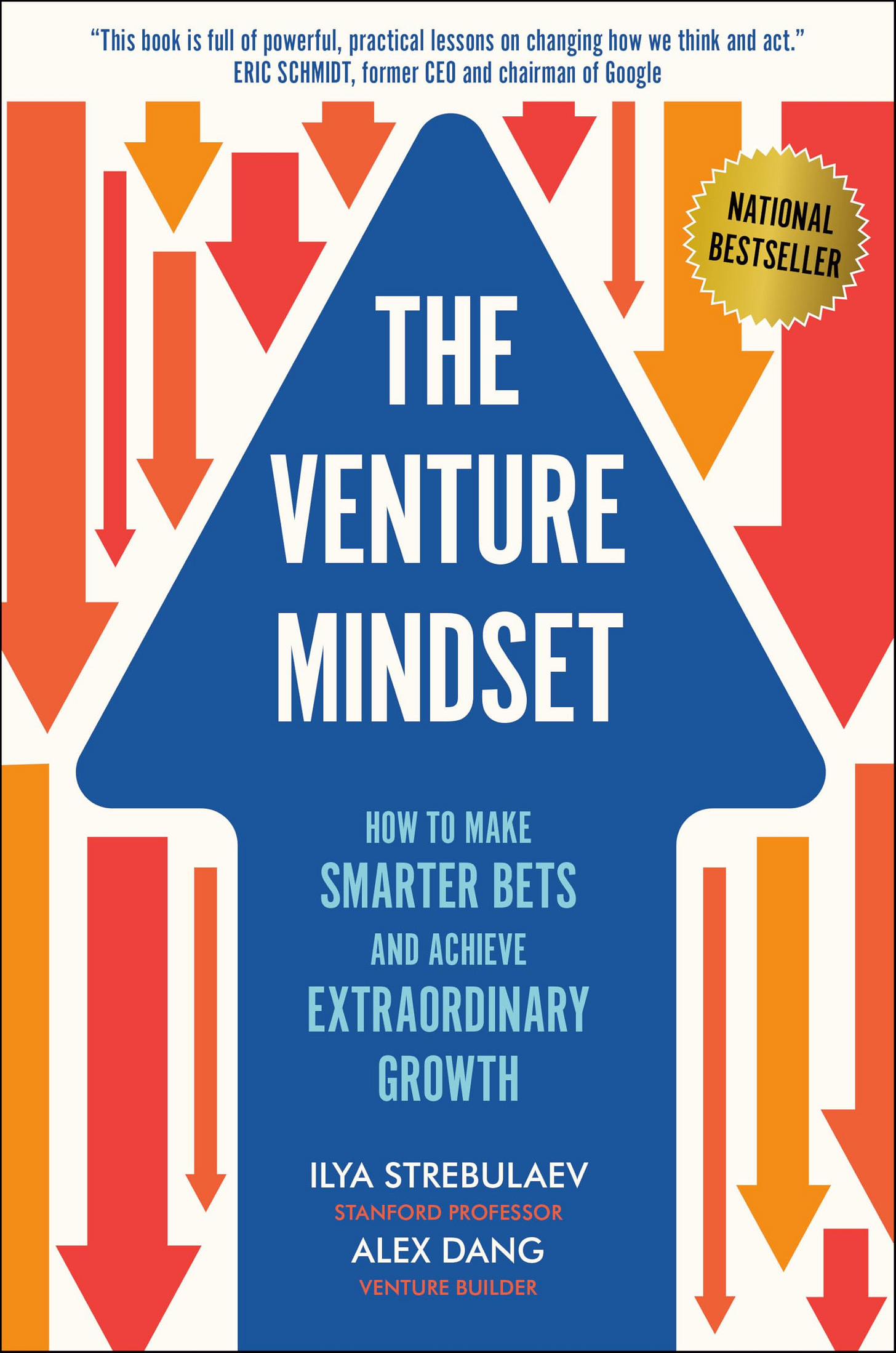
This is the kind of book that rewires how your brain thinks about risk. Written by Stanford professor Ilya Strebulaev, along with venture builder Alex Dang, The Venture Mindset breaks down how top VCs actually make decisions. Not just the public logic, but the private thought processes behind their bold bets.
The core idea is that venture capital only works if you learn to think in probabilities, not certainties. The best investors know most bets will fail, but they play for the outliers. Through incisive analysis and real-world interviews, Strebulaev shows you how they do it, and how that mindset applies well beyond VC as well.
Key Takeaways:
Most investments will flop, and that’s the point. The winners carry the fund.
Thinking like a VC means leaning into uncertainty instead of fighting it.
Pattern recognition isn’t guesswork. It’s trained, repeated judgment, developed over time.
Who It’s For:
Anyone serious about venture capital, from fund managers to first-time founders who want to understand how the other side thinks.
Get The Venture Mindset on Amazon
2. The Power Law: Venture Capital and the Making of the New Future
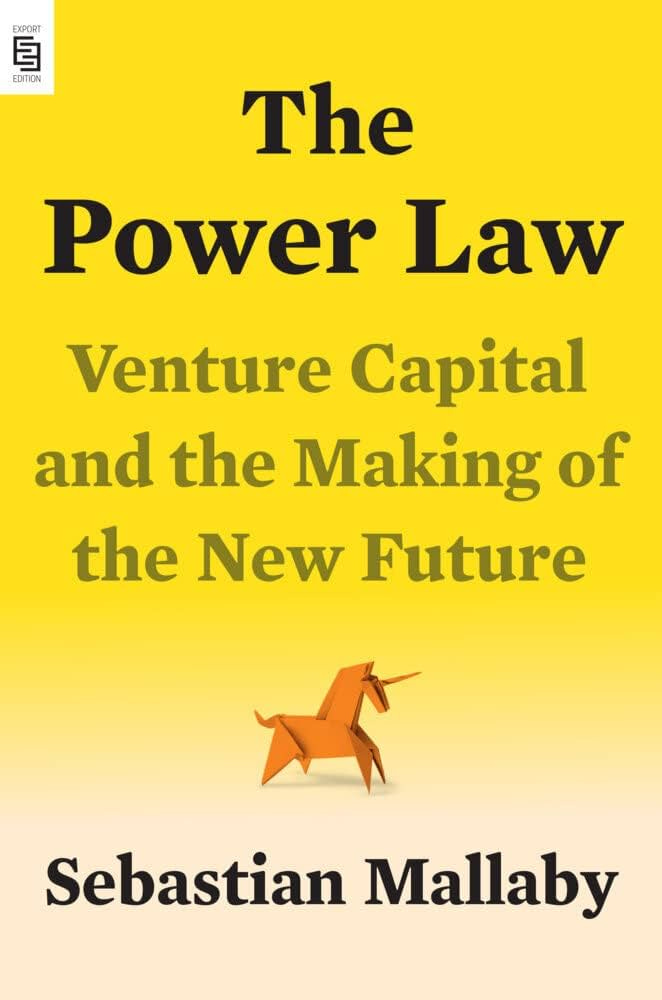
If there’s one book that explains why venture capital isn’t like any other asset class out there, it’s certainly The Power Law. Written by financial historian Sebastian Mallaby, this book isn’t just a how-to guide. It doesn’t teach you how to write a term sheet. This book is a deep dive into how VC became this high-stakes game, where one deal makes the fund and the rest barely matter.
Mallaby goes behind the scenes at legendary firms like Sequoia, Benchmark, and Accel, pulling back the curtain on how they spot breakout companies early, what really drives their conviction, and how firm culture shapes their decisions.
Part history, part strategy, this is a masterclass on the power dynamics that define startup investing at the highest level.
Key Takeaways:
Power laws aren’t just patterns, they’re the engine of VC returns.
Great VCs don’t diversify; they concentrate on conviction.
Firm culture and decision-making structure often matter more than check size.
Who It’s For:
Founders, investors, or startup analysts who want to understand the macro forces and firm-level thinking that separate the legends from the rest.
Get The Power Law on Amazon
3. VC Field Guide: Fundamentals of Venture Capital

This is the book you hand someone who just joined a venture firm, or is thinking about starting one. Written by William Lin of Forgepoint Capital, VC Field Guide walks through the nuts and bolts of how venture actually works, without assuming you're already fluent in the lingo.
What sets this book apart is its practicality. It’s clear, current, and honest about the tradeoffs in VC. Lin doesn’t romanticize the job. He lays out the mechanics of fund strategy, deal sourcing, decision frameworks, and portfolio construction; all extracted from a builder’s mindset.
This is simply one of the most useful VC handbooks out there.
Key Takeaways:
How VC firms are structured and why that shapes how they invest.
The role of thesis-driven investing, and how to actually develop one.
Great investors manage risk like stewards, not gamblers.
Who It’s For:
New VC analysts, associates, operators exploring the field, or anyone considering a role inside a venture firm.
Get VC Field Guide on Amazon
4. Founder vs Investor: The Honest Truth About Venture Capital from Startup to IPO
This is one of the few VC books that reads like it was written in the trenches. And that’s because it was. Founder vs Investor by Elizabeth Joy Zalman and Jerry Neumann delivers a raw, side-by-side look at how each side of the table sees the same deal.
One writer is a repeat founder, the other a seasoned VC. The result is a brutally honest, point-counterpoint breakdown of everything from term sheets to board dynamics.
The strength of this book is in its structure. Each chapter alternates perspectives, showing how decisions feel on both sides of the deal. The result is a rare, candid breakdown of the trust, tension, and misalignment that often shapes startup outcomes more than most people admit.
Key Takeaways:
Why misaligned incentives between founders and investors show up earlier than you think.
What board meetings really are, and how to navigate them without losing leverage or trust.
Fundraising is emotional, imperfect, and deeply personal on both sides.
Who It’s For:
Founders preparing to raise capital, VCs managing relationships, and anyone who’s ever sat through a tense Series B board call.
Get Founder vs Investor on Amazon
5. Venture Deals: Be Smarter Than Your Lawyer and Venture Capitalist (4th Edition)
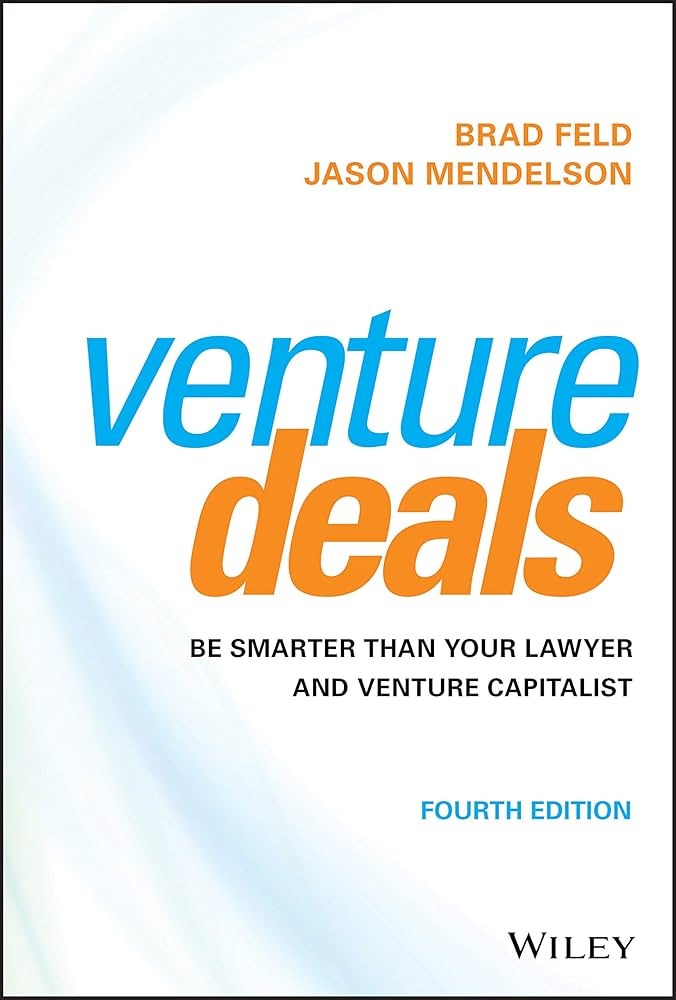
This is the book that founders get handed the moment they say “we’re raising.” And for good reason. Venture Deals by Brad Feld and Jason Mendelson has established itself as the essential guide for understanding how startup financing actually works, without needing a law degree or a finance background.
It covers every part of the dealmaking puzzle: cap tables, term sheets, investor rights, board seats, and more. But what makes it indispensable is how approachable it feels. Feld and Mendelson know the game inside out, and they don’t just explain the mechanics, they explain the motivations behind them.
This book gives founders the clarity and confidence to negotiate on their own terms.
Key Takeaways:
Term sheets aren’t just paperwork, they’re power maps. Learn how to read them.
Option pools, liquidation preferences, anti-dilution clauses; it’s all here, and it finally makes sense.
Smart founders don’t outsource deal knowledge, they build it.
Who It’s For:
Founders raising their first or second round, and investors who want to level up fast.
Get Venture Deals on Amazon
6. The Business of Venture Capital: The Art of Raising a Fund, Structuring Investments, Portfolio Management, and Exits
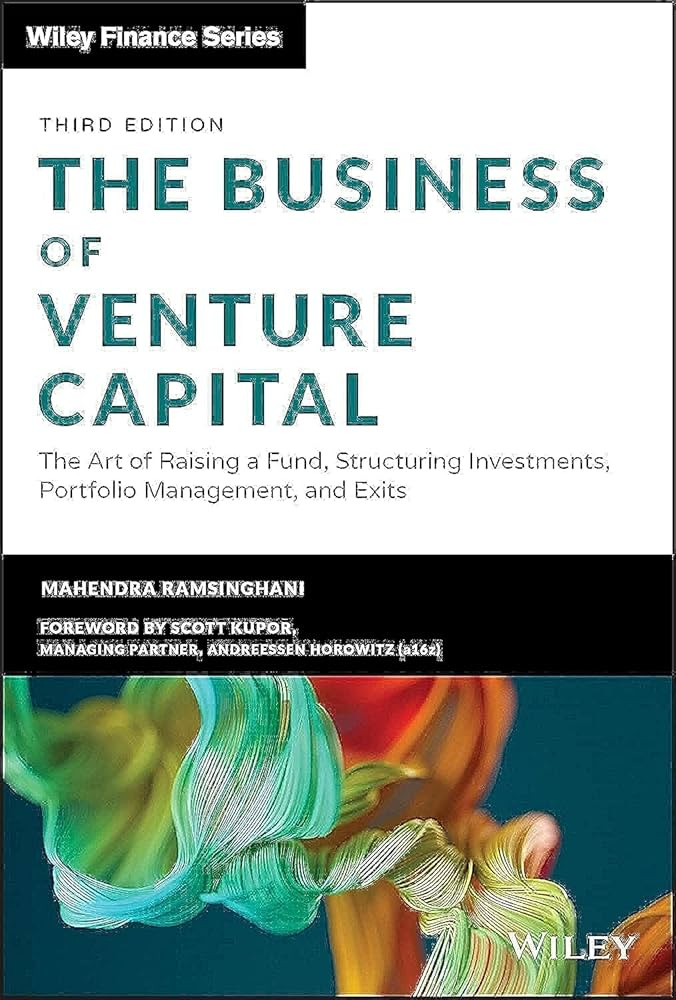
Most VC books are written for founders or operators. This one is written for fund managers. In The Business of Venture Capital, Mahendra Ramsinghani lays out a blueprint for how venture firms actually operate, from raising a fund and managing LPs to sourcing deals, supporting portfolio companies, and planning exit strategies.
What makes it valuable is how deep it goes without losing practicality. Ramsinghani doesn’t glamorize VC, he goes beyond surface-level advice to reveal the realities of fund management: building LP trust, designing an investment thesis, building repeatable sourcing strategies, and constructing portfolios that can survive a few duds and still deliver returns.
This book offers a unique, behind-the-scenes view that most books skip.
Key Takeaways:
What it really takes to raise a fund and build long-term LP relationships.
Fund structure, pacing, and reserves shape long-term outcomes.
Portfolio construction isn’t about luck, it’s about discipline and strategy.
Who It’s For:
Emerging fund managers, experienced angels turning pro, and anyone serious about running a VC fund.
Get The Business of Venture Capital on Amazon
7. Venture Meets Mission: Aligning People, Purpose, and Profit to Innovate and Transform Society
This book is for anyone who’s tired of the old playbook that says VC is only about chasing unicorns. Venture Meets Mission by Arun Gupta, Gerard George, and Thomas Fewer shows how investing doesn’t have to sacrifice purpose for performance. It argues that mission-driven companies can still compete at scale.
Through interviews with GPs, LPs, and mission-first founders, the book demonstrates how to raise capital that aligns with your values, evaluate impact alongside returns, and how to build investment theses that matter.
Simply a grounded, practical guide for those building companies or funds around long-term purpose instead of just short-term returns.
Key Takeaways:
Profit and purpose aren’t trade-offs. They are design principles.
How to build VC firms and startups around long-term, mission-aligned goals.
What LPs actually look for when backing impact-focused funds.
Who It’s For:
Founders building impact-first companies, and investors shaping mission-driven portfolios.
Get Venture Meets Mission on Amazon
8. Fundraising Decoded: A Practical Guide to Raise Capital, Pitch Investors & Navigate Venture Deals
If you’re in the thick of raising capital, or about to be, Fundraising Decoded is the tactical, founder-first guide you’ll want in your corner. It strips away the mystique around venture deals and lays out exactly what to expect, what to prepare, and how to stay in control throughout the process.
What makes this book different is its realism. It doesn’t pretend that founders and investors have equal power, and it offers frameworks for staying confident, sharp, and intentional, whether you're pitching a seed investor or negotiating a growth round.
Key Takeaways:
How to build a fundraising strategy that aligns with your business, not just what investors want to hear.
What great investor pitches do differently, and how to stand out in a crowded inbox.
Why knowing your leverage (and when to walk away) is just as important as knowing your numbers.
Who It’s For:
First-time founders raising external capital, especially those without insider networks.
Get Fundraising Decoded on Amazon
9. Secrets of Sand Hill Road: Venture Capital and How to Get It
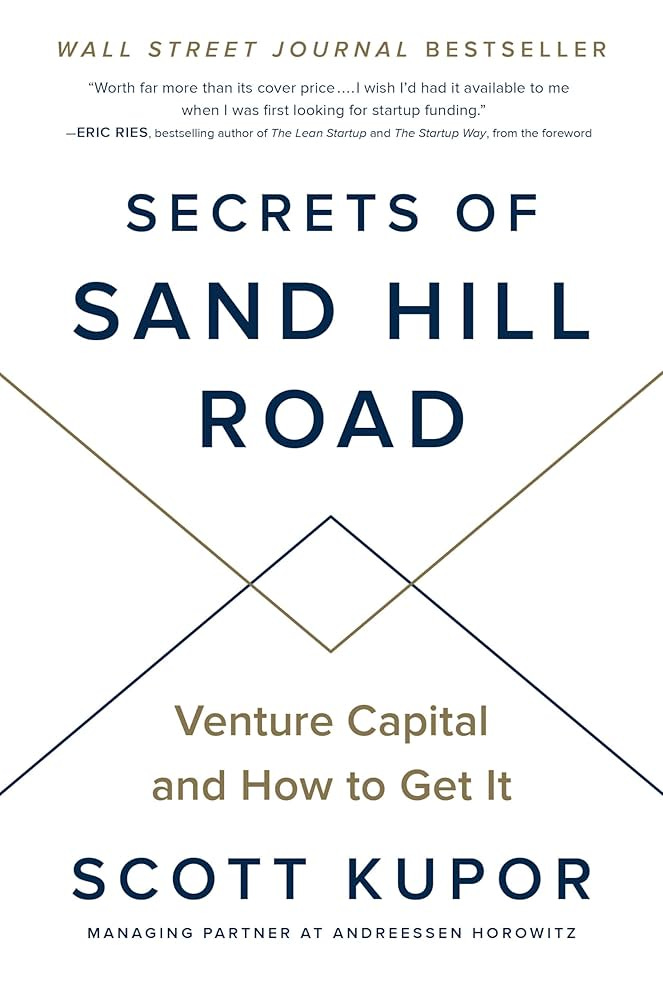
One of the most accessible books for understanding how the VC world actually operates, Secrets of Sand Hill Road is written by Scott Kupor, Managing Partner at Andreessen Horowitz. Kupor knows the industry inside out, and he distills that experience into a clear, founder-focused playbook.
He explains the decision-making process of the best venture firms, what drives internal partner debates, and why even strong startups often get rejected.
This book doesn’t try to be overly clever. It just gives you the real story and it’s full of gems that every founder wishes they knew before stepping into their first pitch meeting.
Key Takeaways:
Why VCs pass on good companies, and how fund dynamics shape those calls.
What founders miss when they don’t understand LP pressures or exit math.
Control terms matter more than valuation if you’re building for the long haul.
Who It’s For:
Founders raising institutional capital who want to understand the mindset behind the money.
Get Secrets of Sand Hill Road on Amazon
10. Funding Your Startup and Other Nightmares
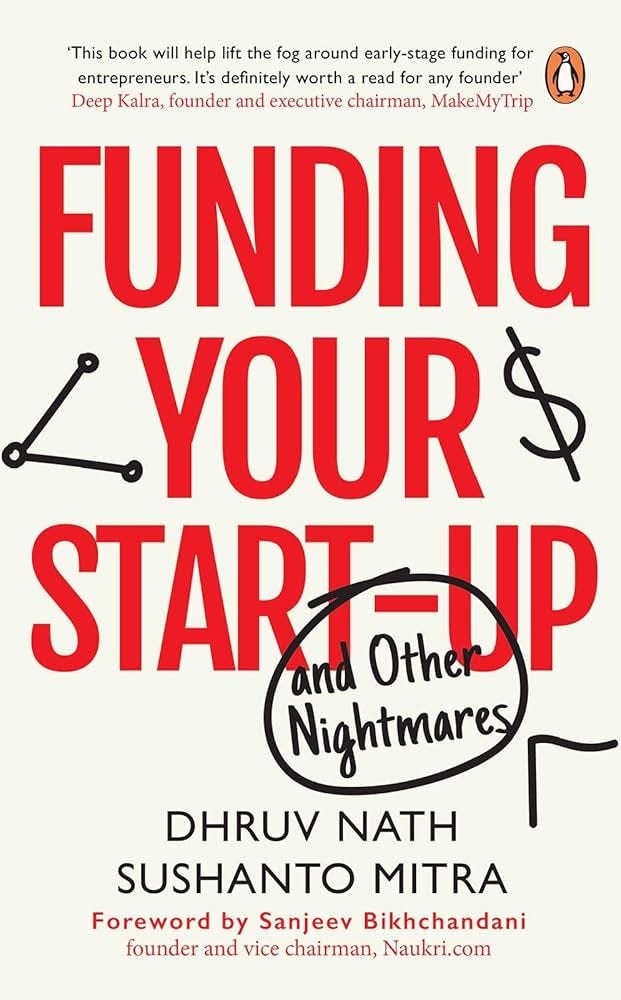
This one isn’t theory, it’s war stories. Written by seasoned founder and investor Dhruv Nath, along with Sushanto Mitra, Funding Your Startup and Other Nightmares tells the unvarnished truth about what fundraising really feels like, especially when you’re in the trenches.
What makes this book stand out is how personal and brutally honest it is. From awkward rejections and founder-investor battles, to the emotional toll of dilution and unmet expectations. No sugarcoating. It’s full of personal stories and hard-earned lessons every founder should hear before they consider entering the fundraising battlefield.
Key Takeaways:
Fundraising is rarely clean, and understanding the human side is half the battle.
Not all money is good money. Choosing the wrong investor can cost you more than equity.
How to navigate term sheets, tough negotiations, and investor red flags with eyes wide open.
Who It’s For:
First-time founders who want the unfiltered truth before stepping into the pitch room.
Get Funding Your Startup and Other Nightmares on Amazon
Key Takeaways From the Best Books on Venture Capital
Read enough of these books and things will slowly start clicking. Behind the frameworks and case studies, a few truths consistently show up, no matter which side of the table you’re on.
Risk is the name of the game. Venture works because most bets fail and a few go exponential. The best investors don’t avoid risk, they manage it with clarity and conviction.
Know your terms. Whether you’re a founder or a fund manager, understanding term sheets, liquidation prefs, and board dynamics is non-negotiable.
The relationship is the deal. Capital is everywhere. What matters is who it comes from, what they expect, and how aligned you’ll be when things get hard.
It’s not always about you. Great founders get rejected all the time because of fund timing, thesis changes, or internal dynamics. Signals over noise.
The industry is evolving. Today’s VC is more global, more impact-aware, and increasingly shaped by data, AI, and emerging fund models. The books that matter now reflect that shift.
These reads won’t make you a world-class investor overnight, but they’ll shorten your learning curve. And in venture, that’s half the battle.
FAQs About Venture Capital Books
Do I need to understand finance to read VC books?
Not at all. Many of the best venture capital books are written to be accessible, even if you’ve never seen a cap table before. You’ll pick up the financial concepts as you go, and the good books walk you through them without drowning you in jargon.
Can I learn enough from VC books to break into venture capital?
Books are a great foundation, but they’re only part of the equation. What gets you into VC is sharp thinking, a strong network, and showing you can spot or support winners. That said, reading the right books gives you a language and mindset most candidates miss.
Is it better to read about VC from a founder or investor POV?
Both are useful but different. Founder-written books often reveal what the process feels like, while investor-written ones break down how the machine works. Reading both gives you an edge. You’ll understand not just the structure of VC, but the psychology behind it.
What’s the best venture capital book for beginners in 2025?
Start with Venture Deals. It’s still the clearest guide to how startup financing works. Pair it with Secrets of Sand Hill Road for perspective, or The Venture Mindset if you’re more interested in how VCs think rather than how deals get done.
Do I need to read these books to raise venture capital?
You don’t need to read a dozen books about VC funding, but even a few sharp ones can dramatically improve how you negotiate, pitch, and choose investors.



